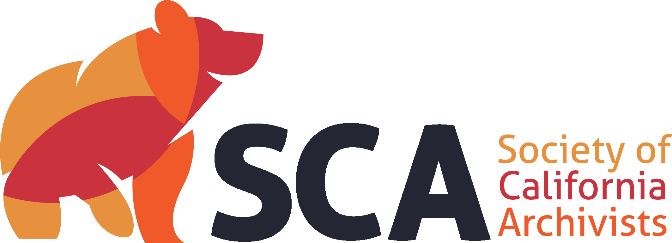Luncheons
Both luncheons will feature California cuisine catered by the Crowne Plaza. The luncheons provide an excellent time to converse with fellow archivists over a tasty meal and enjoy presentations from historians who advocate the use of archival materials during their research.
| SCA members |
$35 |
| Non-members | $40 |
| Students | $25 |
Questions about Luncheons? Contact Cyndi Shein <cshein@getty.edu>
FRIDAY LUNCHEONThe SCA Awards Ceremony will follow our speaker.Janet Fireman, "Between Horizons: Traveling the Great Central Valley" Over a dozen years, frequent driving trips between Los Angeles and San Francisco cultivated and seasoned the historian's esteem for California's Great Central Valley, and ripened her curiosity about how authentic travelers--witnesses of the land--understood the Valley's topographic variety, hydrology, ecosystems, and human cultures as they journeyed and documented what they saw. With quotations from a variety of observations, recollections, and meditations exposing the promise of place, the essay points to an under-appreciated past, directing attention to changes wrought by humans, nature, and the passage of time. Janet Fireman is Editor of the journal California History with editorial offices in the history department at Loyola Marymount University; curator emerita at the Natural History Museum of Los Angeles County, and Adjunct Professor of History at USC. | SATURDAY LUNCHEON
Jerome Lynn Hall, "Beyond the Blue Door: Why I Teach Surf Culture and History" Play has often been described as little more than a series of physical movements. But in his seminal volume, Homo ludens, or “Man the Player,” preeminent Dutch historian and cultural theorist Johan Huizinga (b. 1872, d. 1945) explored the many social, psychological, and spiritual components of playful activity, likening it, on occasion, to the deeply expressive acts of, inter alia, dance and religious ceremony. |
